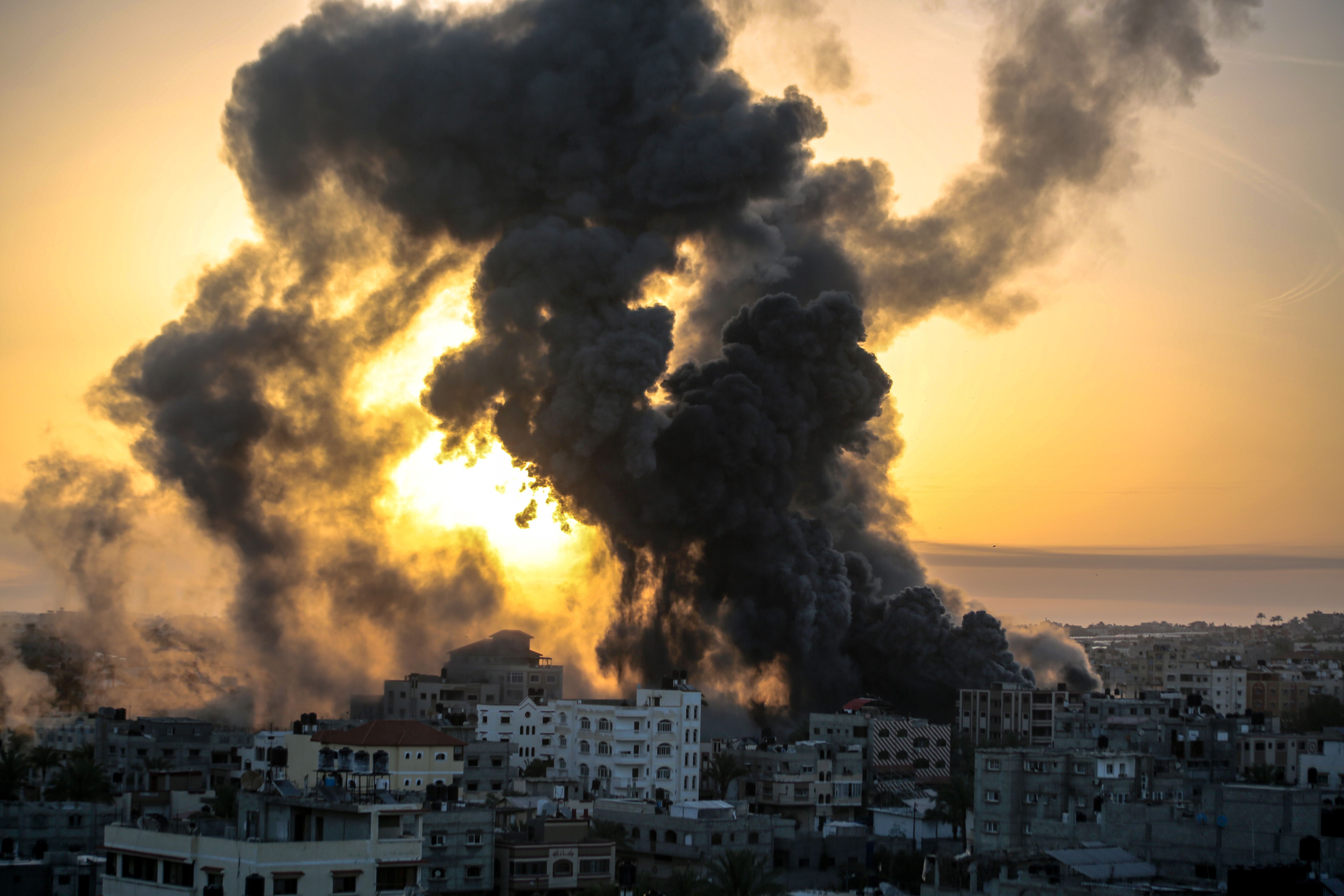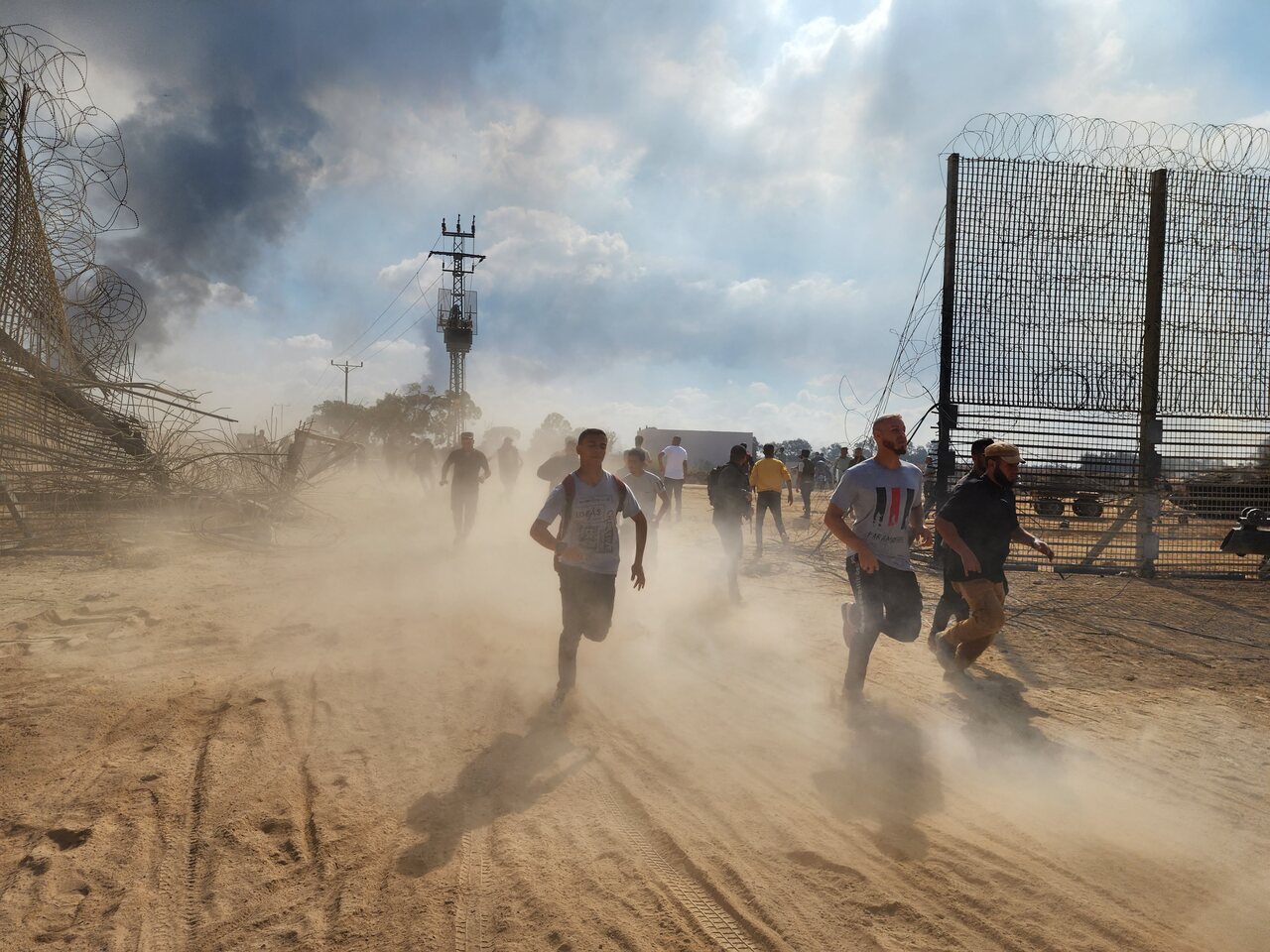U.S. Unequivocal in Reaction to Latest Hamas-Israel Conflict
After the unprecedented terrorist attack by Hamas and other radical Palestinian groups on Israel, the U.S. administration announced extensive military, intelligence, and diplomatic aid to the country. However, the new war over the Gaza Strip raises a number of interrelated issues for current U.S. policy towards the Middle East. Despite bipartisan support for Israel in the United States, further developments might be used by some Republicans in Congress in a political game to limit U.S. military assistance to Ukraine.
 Mc2 Jacob Mattingly/U.S. Navy / Zuma Press / Forum
Mc2 Jacob Mattingly/U.S. Navy / Zuma Press / Forum
What were the U.S. administration’s first steps after the attack?
The U.S. intelligence community and administration were surprised by the scale, nature, and course of the Hamas attack on Israel on 7-8 October. As of 12 October, among the around 2,000 dead, 22 U.S. citizens have been confirmed killed, with an unknown number of Americans among the 100 or so hostages in the hands of the terrorists. The attack by Hamas was a profound shock to the American public, which has perceived it as equivalent to Al-Qaida’s attacks on the U.S. on 11 September 2001. President Joe Biden and his officials currently remain in constant working contact at all levels with the Israeli government. Biden also announced further aid for Israel and an increased U.S. military presence in the Middle East. On 12 October, talks in Israel and Jordan included Secretary of State Tony Blinken and the American hostage issues coordinator, Steve Gillen. Earlier, the head of American diplomacy also held telephone consultations with selected allies in the Middle East and Europe.
Will the United States join Israel’s war against Hamas?
The U.S. started urgent deliveries of guided bombs and missiles to Israel and will provide it access to its (lately partly depleted) stockpiles of ammunition and equipment stored in that country and the region. The Biden administration though has no intention of direct involvement in the operations of the Israeli land and air forces in Gaza or in Lebanon. The priority issue for both Israel and the U.S. is the release of at least 100 hostages—some have dual U.S. and Israeli citizenship—taken by the terrorists. While exhausting negotiation options, the U.S. can assist Israel with intelligence and planning with hostage rescue as either a comprehensive operation or series of operations. If necessary, U.S. Special Forces and FBI experts might be involved in these efforts. The U.S. has increased its forces in Jordan and the Persian Gulf and two aircraft carrier groups in the Mediterranean Sea have been deployed to deter Lebanese Hezbollah, Iran, and Syria from attacking Israel. The buildup is the U.S. signalling its determination to prevent or punish any coordinated attacks on Israel as well as any Shia militia’s against small groups of U.S. ground forces in Iraq and Syria.
How might the war impact U.S. regional policy?
Biden administration policy towards the Middle East so far has been based on the need to degrade Al-Qaida and ISIS as well as reducing the U.S. military presence in the region, supporting the normalisation of relations between Israel and Arab states, and limiting Iran’s nuclear programme. Both the short and intense air campaign and a full re-occupation of Gaza by Israel may undermine the previous goals of U.S. regional policy. A full-scale ground operation by Israel in Gaza would once again draw the attention of Arab societies to the unresolved Palestinian issue, which could also draw in Sunni terrorists, whose organisation has been disrupted in recent years. War on the streets of Gaza would also postpone the prospects for quick and formal normalisation of relations between Israel and Muslim countries, in particular Saudi Arabia. The longer such an Israeli ground operation would continue, the greater risk of destabilisation of the West Bank (Palestinian Authority, Hamas’ rival), Jordan, and Lebanon. Also, because Egypt shares a border with Gaza, its role in U.S. efforts will increase. In case Iran is confirmed to have been involved in planning and organising Hamas’ latest attack, it will be difficult to resume direct U.S.-Iran talks to limit and control the latter’s nuclear programme. The U.S. also cannot realistically count on constructive support from Russia or China in stabilising the situation in the Middle East.
Will the war in Gaza affect U.S. assistance to Ukraine?
Although relations with Israel traditionally have bipartisan support in the U.S., some Republicans are already using the Hamas attack to criticise Biden’s entire foreign policy, and in particular his assistance to Ukraine. Therefore, the Biden administration will continue to struggle with both the hostility of Trump backers in Congress and paralysis in the House of Representatives at a time of two parallel regional conflicts. The White House will probably try to push through Congress a single, combined package of additional funds for military assistance to Israel, Ukraine, and Taiwan and additional measures for the security of the U.S. southern border to win over all sides. Regardless of the level of funding for Ukraine, there is still a risk that Biden will remain cautious about filling military capability gaps against Russian forces. If the U.S.’s deep reserves of equipment, weapons, and ammunition are not released and the production of ammunition especially increased to cover the needs for Israel and Ukraine, some disruption in supplies to both countries might occur. These challenges require an urgent increase in the scope, quality, and quantity of the assistance from European NATO states and Alliance partners for Ukraine’s continued counteroffensives and reconstitution of its multi-role fighter fleet.



.png)

